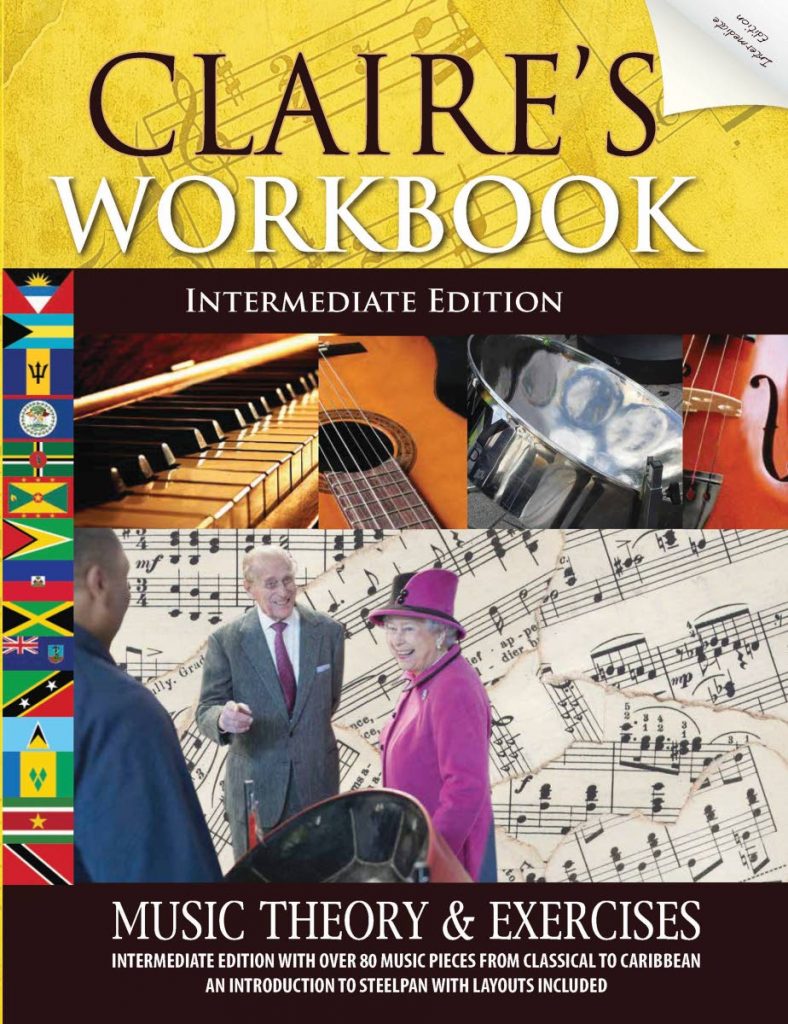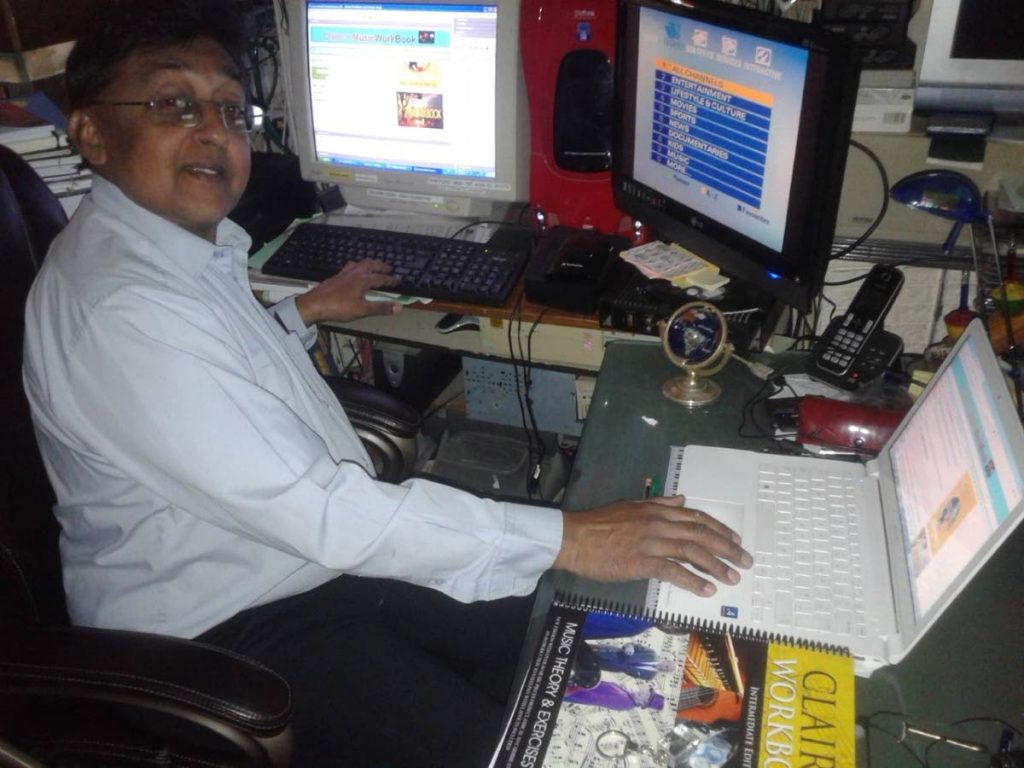Music made simple

SHIRVAN WILLIAMS
Learning to read music can be a difficult task but it is well worth it for those who want to become professional musicians or even want to develop a rewarding hobby. This is exactly what Eros Mungal is hoping to help people with.
Mungal is the author of Claire's Music Workbook. He also recently finished an intermediate edition of the book, which can be used by people who have completed the first level. The textbook focuses on the CSEC music syllabus.
He named the book after his now deceased daughter, who not only provided him with the inspiration but was hands-on with the project as well.
“Claire played an instrumental part in my teaching classes. When the book was first published, I decided to name it after her as she did much of the work on it,” he said.
He fondly recalled that she created a Traditional Christmas Carol Book and did most of the work, typesetting music and typing out the lyrics. Claire, his only daughter, died at just 27, after suffering a pulmonary embolism in July 2002.
At the time she was doing a teacher-training degree at Roehampton University in London. Mungal, who has lived in England for about 40 years, said he was happy she was able to see the new edition of the book before her unfortunate death.
Another factor that contributed to his producing the textbook was his background in education.
“My parents were both teachers and my father a headmaster or principal. So it was quite easy to nurture those techniques. I have taught O- and A-Level chemistry at Holy Faith Convent and I teach music in my spare time, focusing on piano and keyboard skills.”
Music teaching is not yet Mungal’s full-time job. He was an engineer in science-based industries and now does auditing in the aerospace industry.
While he was a teacher Mungal would make notes for future classes as well as try to understand better any issues his students raised. He would eventually use these notes to compile the workbook.
He discovered his passion for music from a very early age.
“I went to music lessons before I was four years old. I could read quite well as my mother took me to school since I was a baby. Of course, this would not be allowed these days. I attended Presentation College, San Fernando, and did the formal grades in music until I was 14 and about to do the O-Levels.”
It was soon after his A-Levels that his mother decided to migrate to the UK. He then had private tuition as he advanced in playing the piano before he began to play and learn music by himself.
“I listened to all the classical LPs (long playing albums) which were then on loan from the local libraries. I was asked by acquaintances to teach their children music. I also played for a local choir and the local church.”
He was also inspired by listening to music on the available radio stations on the AM band at that time.

Mungal’s choice to market his book in the Caribbean was mostly out of his fondness for the region and the fact that he has a close relationship with the publisher of the book, RPL (1991) Ltd, of La Romaine. He also said though he lives in England, his heart is pure Trinidadian.
He believes the market in the United Kingdom is complex and might not be as accommodating to changing the way music is taught.
“The book I used as a child is still being reprinted in the UK, virtually unchanged, not taking into account changes in taste and approach by newer generations. I grew up with the concept of buying local, and of course, having it printed in Trinidad fulfils this ideal.”
Mungal hopes the book can help to preserve some of this country’s musical history as well. He has included Marjorie Padmore’s God Bless Our Nation’and Kathleen Piper’s Our Nation’s Dawning in his attempt to teach the younger generation songs created to celebrate Independence Day. This edition of the workbook also includes a pan supplement.
“In addition, Claire's Intermediate workbook is the only workbook which goes towards addressing the requirements of the CXE exam body with respect to the CSEC music syllabus.”
Mungal took special care to include classical music pieces as well. This, he hopes, will help younger learners understand the connection between old and new music.
“Of course I have included popular classical tunes, which in my experience young people know but do not necessarily realise that they may be based on classical music. It must be realised that to document music and record it for eternity, then it has to be written and scored in a formal way.”
By teaching young musicians this connection, he hopes they will understand music can be used as a global communication tool.
“Music thus recorded can be read and played in any country in the world. It is indeed a universal language, even though you might not be able to read the title in a foreign language.
"This will outlive any electronic media, long after the USB key cannot be read because the format has changed, the hard drive failed, or the CD layer becomes tarnished or oxidised and thus unreadable.
“My intention is to give these tunes to the next generation of children or we run the risk of them being forgotten.”


Comments
"Music made simple"